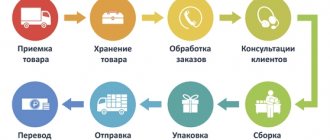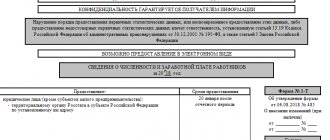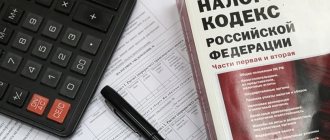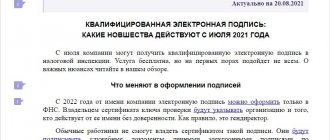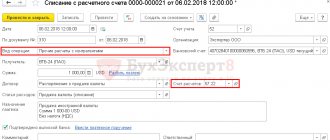One of the most important points that sooner or later any novice entrepreneur will have to decide on is what taxation system he should work under. This is important, since the taxation system determines not only how to keep accounts, submit declarations and reports, but also how much taxes and fees will be levied on the organization. It must be said that not only young businessmen may be puzzled by the problem of choosing a tax system. In the process of work, a change in the tax regime for some reason may be necessary for enterprises that have been existing on the market for a long time. In Russia, there are two most commonly used tax regimes for enterprises and organizations - general and simplified. Now we will talk about the simplified one, or, as it is also called in accounting circles, “simplified”.
Why simplified tax system?
The simplified tax system is extremely convenient for small and medium-sized enterprises. Since all accounting reports are carried out in a simplified version, they do not need to have an accountant on staff and can outsource bookkeeping. “Simplified” allows you to replace as many as three taxes with one and at the same time also gives you the opportunity to choose the so-called “object of taxation”.
Simply put, the management of an enterprise has the right to decide how it will pay taxes: 6% of income or 15% of income minus expenses . Moreover, once a year, on the eve of the new calendar year, the object of taxation can be changed.
Another undeniable advantage of the simplified tax system is the ability to submit a declaration only once a year. Unlike the General Taxation System, the simplified regime exempts enterprises from certain types of taxes. For example, if we talk about Limited Liability Companies, they may not pay tax on property on the balance sheet of the organization, value added tax, as well as corporate income tax. Individual entrepreneurs who have chosen the “simplified system”, being individuals, are not required to pay tax on income from business activities; they are exempt from tax on property used in their work, as well as from VAT.
Important! Even with the Simplified Taxation System, LLCs and individual entrepreneurs are legally required to pay personal income tax (NDFL) on employee salaries. Neglect or evasion of this duty will inevitably entail punitive sanctions.
What is more profitable - income or “difference”?
Let's see an example:
Pineapples in Champagne LLC earned 1,000,000 rubles in a month and spent 500,000 rubles.
If the simplified tax system “Income” is applied at a rate of 6%, the tax will be 1,000,000 × 6% = 60,000 rubles.
If the LLC has chosen the “Income minus expenses” option and the regular (non-preferential) rate of 15% is in effect in the region, the tax will be (1,000,000 - 500,000) × 15% = 75,000 rubles.
Conclusion:
- if the organization’s expenses are less than 60% of income or expenses are difficult to confirm with documents, then the first option is more profitable - income at a rate of 6%;
- if expenses exceed 60% of income and meet the requirements given in the Tax Code of the Russian Federation, then the second option is more optimal - income minus expenses, 15%.
This recommendation does not take into account the possibility of reducing the tax rate for your type of activity in the regions and reducing the tax on the amount of insurance premiums, contributions under voluntary personal insurance contracts, expenses for paying for the first three days of sick leave and trade tax.
Under the simplified tax system “Income”, individual entrepreneurs without employees may not pay tax at all if it turns out to be less than the amount of insurance premiums. And individual entrepreneurs with employees and organizations can reduce the tax by half at the expense of insurance premiums.
Under the simplified tax system “Income minus expenses”, salaries and insurance premiums are included in expenses and reduce the tax base. And remember that even if there is a loss on the simplified tax system “income minus expenses”, you must pay the minimum tax.
Who can and who cannot work under the simplified tax system
The simplified tax system in Russia is very common, perhaps because the law provides that any enterprises and organizations that provide a certain list of works and services to the population can use it. The exceptions are:
- Investment funds, banks, pawnshops, microfinance organizations and other financial structures
- Non-state pension funds, insurance organizations
- Organizations with branches
- Budgetary organizations
- Those companies that organize and conduct gambling and similar events
- Companies that are parties to production sharing agreements
- Organizations engaged in the extraction and sale of minerals (except for common ones, such as clay, sand, crushed stone, peat and others)
- Enterprises registered in other states
- Companies in which the share of participation of other companies is more than 25% (except for non-profit organizations, budget educational institutions)
- Enterprises producing excisable goods (alcohol, alcohol, tobacco, cars and motorcycles, gasoline, diesel fuel, motor oils, see the full list in Article 181 of the Tax Code of the Russian Federation)
- Companies with more than 100 employees
- Organizations that have switched to Unified Agricultural Tax
- Those enterprises whose residual value of fixed assets is more than 100 million rubles
- Companies that did not report the transition to the simplified tax system within the time limits and in the manner prescribed by law
It should be noted that changes occur periodically in this part of the Law, so we recommend that you periodically monitor this list.
Conditions for the transition to the simplified tax system
Even if the activities of an enterprise are included in the list of those permitted to operate under the simplified tax system, you need to know that in this case there are certain restrictions. That is, in order for the tax authorities to allow the transition to the “simplified” system, it is necessary that the internal component of the enterprise meet certain conditions. In particular:
- The net profit of the enterprise must be less than 60 million rubles per year
- The company should not employ more than 100 people
- The residual value should be no more than 100 million rubles
- If this is an organization, in particular a Limited Liability Company, then the share of participation of other organizations in it should not exceed 25%
ATTENTION! According to the law, those organizations and enterprises that have branches and representative offices will not be able to take advantage of the transition to a simplified taxation system, regardless of their location.
How to switch to "simplified"
Entrepreneurs, already during the procedure for registering an enterprise, are required to decide on the taxation regime under which they plan to operate. You can submit a notification for the Simplified Taxation System either together with the rest of the package for state registration, or submit it later - within 30 days after submitting the main documents to the tax office.
If this does not happen, then the enterprise is automatically included in the general taxation system.
Sometimes it happens that in the process of work, businessmen understand that the simplified tax system is preferable to the operating tax system, and the question arises: is it possible to change the tax payment regime and how to do this? Yes, you can switch to the “simplified” system at any time during the operation of the enterprise. Due to its simplicity, this procedure should not cause any difficulties. To do this, the management of the enterprise must submit a notification to the tax authorities about the transition to the simplified tax system by the beginning of the next calendar year, but this must be done no later than December 31 of the current year. A standard sample notification can be easily found on the website of the Federal Tax Service.
Also read the full version of the material “how to switch to the simplified tax system.”
What is taxed under the simplified tax system?
Maintaining accounting and tax records, accounting for fixed assets, automatic calculation of the simplified tax system, filing reports without leaving home in the online service Kontur.Accounting! Get free access for 14 days
When switching to the simplified tax system, the taxpayer selects an object of taxation and charges a single tax at the established rate:
- If the object of taxation is income - the standard tax rate is up to 6% with the possibility of increasing to 8% in case of violation of the income limit and the average number of employees,
- If the object of taxation is income reduced by the amount of expenses, the standard tax rate is up to 15% with the possibility of increasing to 20% if the income limit and the average number of employees are violated.
For certain categories of taxpayers, constituent entities of the Russian Federation are reducing the rate from 15% to 5% under the simplified tax system “income minus expenses” and from 6% to 1% under the simplified tax system “income”.
For entrepreneurs on the simplified tax system of 15%, the minimum tax rule applies: if at the end of the year the tax amount is less than 1% of the income received for the year, then a minimum tax of 1% of the income is paid. Even in cases where the company made losses.
You cannot apply two rates simultaneously or alternate them within a year. To change the taxable object for the next year, submit a notification before December 31 of the current year.
Participants in a simple partnership or trust agreement apply only “Income reduced by the amount of expenses.”
Cons of the simplified tax system
Before deciding whether to switch to a simplified tax regime, you should carefully weigh the pros and cons. The fact is that, despite the obvious advantages, working under the simplified tax system also has a number of hidden pitfalls. In addition to the above-mentioned restrictions on the number of employees in an enterprise and profit margins, the main disadvantage of working under the simplified tax system is the exemption of organizations from paying VAT.
The essence of the problem
Large enterprises, which, as a rule, operate under the General Taxation System, and therefore with VAT, require their counterparties to fill out invoices. Meanwhile, entrepreneurs working on the simplified tax system are legally unable to issue these invoices. Another disadvantage of the simplified tax system is that in case of loss of the right to work under it, for example, as a result of exceeding the limit on the number of permitted number of employees or exceeding profits, it will be possible to return to it only from next year. Moreover, the application for the transition will need to be submitted on the eve of January 1.
Types of activities under the simplified tax system for the application of reduced tariffs for insurance premiums
At the end of November of this year, changes were made to the list of types of activities for entities on the simplified tax system, which are subject to insurance premiums at a reduced rate. Their list is contained in subparagraph 5 of paragraph 1 of Article 427 of the Tax Code of the Russian Federation. At the end of the material you will find a convenient table of the relationship between the mentioned types of activities according to OKVED1 and OKVED2 indicating the new code. But first, some general information.
The previous version of this norm included types of activities based on OKVED1. However, we all know well that since 2017, OKVED2 has been applied. As a result, the types of activities specified in the Tax Code did not coincide with the new classifier.
This caused concern among simplified tax payers - they could not understand whether they had the right to apply reduced insurance premium rates. Officials of the Ministry of Finance have repeatedly explained (for example, letter of the Ministry of Finance No. 03-15-06/2197 dated January 19, 2017) that to resolve this issue it is necessary to use transition keys between OKVED1 and OKVED2. They were developed by the Ministry of Economic Development.
The Ministry of Finance also promised that the Tax Code will soon be changed. And on November 27 of this year, a law was signed that introduced changes to subparagraph 5 of paragraph 1 of Article 427 of the Tax Code of the Russian Federation. The law states that the new list of activities applies to legal relations arising from January 1, 2022.
What types of activities for “simplified” workers are taxed at a reduced rate can be found in the table.
Read our article on how to prepare a Declaration under the simplified tax system with the taxable object “Income” for 2022
Table of the ratio of types of activities according to OKVED 1 and OKVED 2 for the application of reduced insurance premium rates under the simplified tax system
| Old type of activity | A new type of activity | OKVED2 code |
| food production | food production | 10 |
| production of mineral waters and other non-alcoholic drinks | production of soft drinks, production of mineral waters and other bottled drinking waters | 11.07 |
| textile and clothing production | textile production | 13 |
| manufacture of wearing apparel | 14 | |
| production of leather, leather goods and footwear production | production of leather and leather products | 15 |
| wood processing and production of wood products | wood processing and production of wood and cork products, except furniture, production of straw products and wicker materials | 16 |
| chemical production | production of chemicals and chemical products | 20 |
| production of medicines and materials used for medical purposes | 21 | |
| production of rubber and plastic products | production of rubber and plastic products | 22 |
| production of other non-metallic mineral products | production of other non-metallic mineral products | 23 |
| production of finished metal products | production of finished metal products, except machinery and equipment | 25 |
| production of machinery and equipment | production of machinery and equipment not included in other categories | 28 |
| production of electrical equipment, electronic and optical equipment | production of computers, electronic and optical products | 26 |
| production of electrical equipment | 27 | |
| production of vehicles and equipment | production of motor vehicles, trailers and semi-trailers | 29 |
| production of other vehicles and equipment | 30 | |
| furniture manufacture | furniture manufacture | 31 |
| production of sporting goods | production of sporting goods | 32.3 |
| production of games and toys | production of games and toys | 32.4 |
| research and development | research and development | 72 |
| education | education | 85 |
| health and social services | health activities | 86 |
| residential care activities | 87 | |
| provision of social services without providing accommodation | 88 | |
| activities of sports facilities | activities of sports facilities | 93.11 |
| other activities in the field of sports | activities of sports clubs | 93.12 |
| activities of fitness centers | 93.13 | |
| other sports activities | 93.19 | |
| processing of secondary raw materials | collection, processing and disposal of waste; processing of secondary raw materials | 38 |
| construction | building | 41 |
| construction of engineering structures | 42 | |
| specialized construction work | 43 | |
| vehicle maintenance and repair | vehicle maintenance and repair | 45.2 |
| disposal of sewage, waste and similar activities | wastewater collection and treatment | 37 |
| transport and communications | activities of land and pipeline transport | 49 |
| water transport activities | 50 | |
| air and space transport activities | 51 | |
| warehousing and auxiliary transport activities | 52 | |
| postal and courier activities | 53 | |
| activities in the field of television and radio broadcasting | 60 | |
| activities in the field of telecommunications | 61 | |
| provision of personal services | activities related to the provision of other personal services | 96 |
| production of cellulose, wood pulp, paper, cardboard and products made from them | production of paper and paper products | 17 |
| production of musical instruments | production of musical instruments | 32.2 |
| production of various products not included in other groups | production of products not included in other groups | 32.9 |
| repair of household products and personal items | repair of computers, personal and household items | 95 |
| real estate management | management of real estate for a fee or on a contract basis | 68.32 |
| activities related to the production, distribution and screening of films | production of films, videos and television programs | 59.1 |
| activities of museums and protection of historical sites and buildings | activities of cultural and art institutions | 90.04 |
| activities of libraries, archives, club-type institutions (except for the activities of clubs) | activities of libraries, archives, museums and other cultural objects | 91 |
| activities of botanical gardens, zoos and nature reserves | ||
| activities related to the use of computer technology and information technology, with the exception of organizations and individual entrepreneurs specified in subparagraphs 2 and 3 of paragraph 1 of Article 427 of the Tax Code | activities in the field of information technology, with the exception of organizations and individual entrepreneurs specified in subparagraphs 2 and 3 of paragraph 1 of Article 427 of the Tax Code | 63 |
| development of computer software, consulting services in this area and other related services, with the exception of organizations and individual entrepreneurs specified in subparagraphs 2 and 3 of paragraph 1 of Article 427 of the Tax Code | 62 | |
| retail trade of pharmaceutical and medical goods, orthopedic products | Retail trade of medicines in specialized stores (pharmacies) | 47.73 |
| Retail trade of products used for medical purposes, orthopedic products in specialized stores | 47.74 | |
| production of bent steel profiles | production of profiles using cold stamping or bending | 24.33 |
| steel wire production | wire production by cold drawing method | 24.34 |
| repair and installation of machinery and equipment | 33 | |
| production of medical instruments and equipment | 32.5 | |
| veterinary activities | 75 | |
| activities of travel agencies and other organizations providing services in the field of tourism | 79 | |
| maintenance activities for buildings and grounds | 81 |

